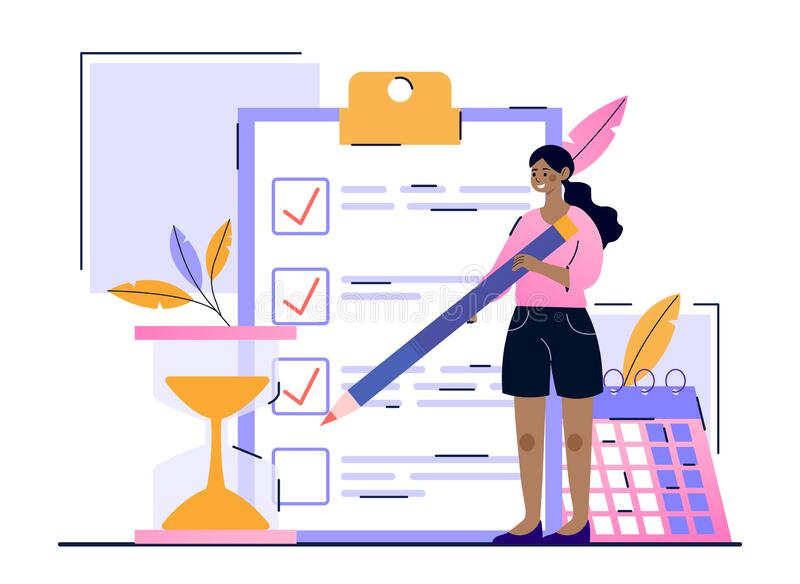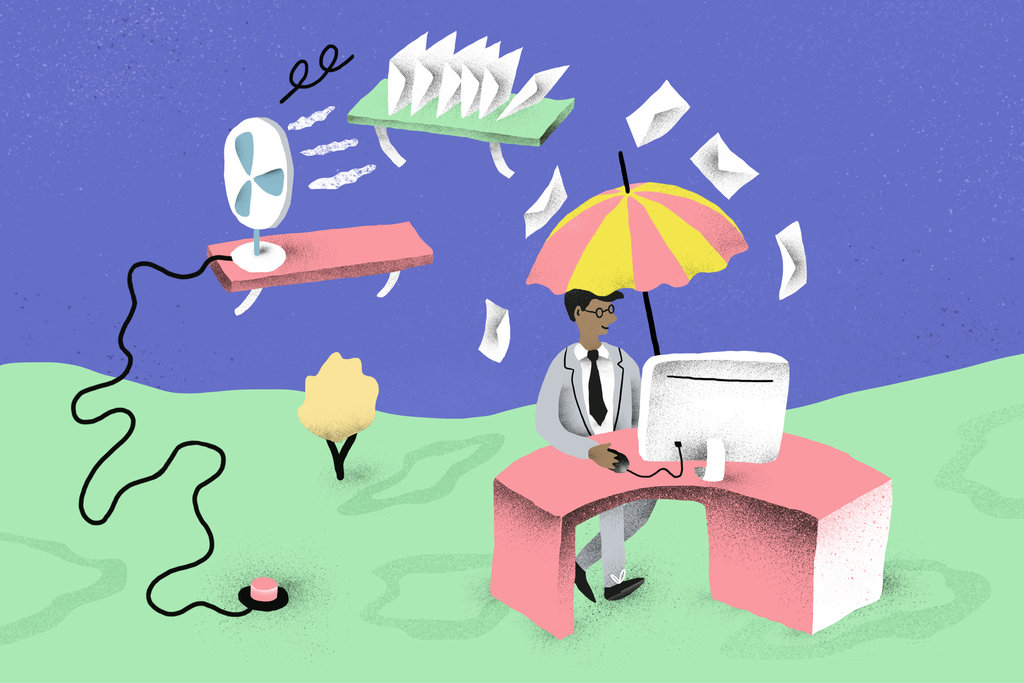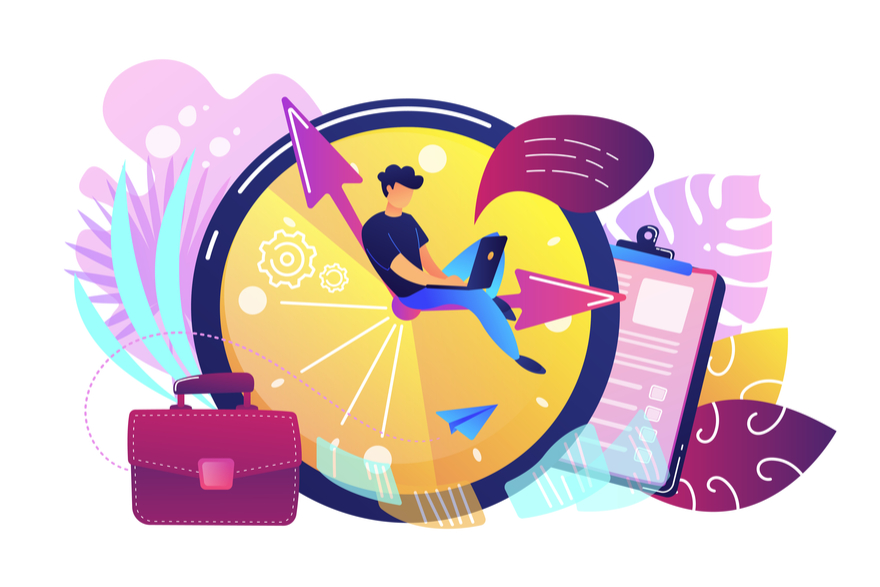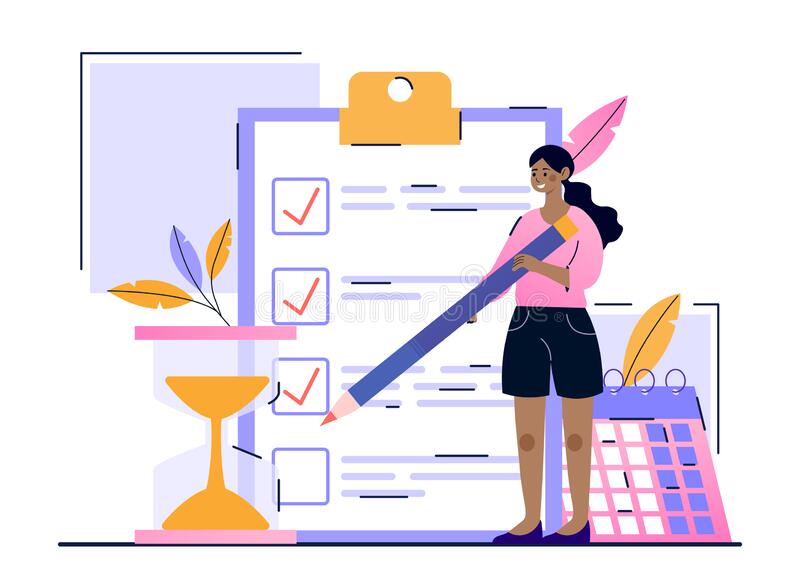
Personal productivity is relative; depending on the aims of the individual, it may signify different things to different people. Some people would define productivity as working more quickly and completing lengthy tasks in less time; others may define it as focusing more intently and producing higher-quality work; whilst another school of thought defines it as becoming more organized and making the most of each day. Personal productivity is a skill with multiple avenues that all lead to the same end, which is producing better results.
Nowadays, the lines between work and life have become blurred, so personal productivity is as important to our lives as it is to our work. Some people work in offices, some on the field while others work from home. Activities like sleeping, eating and the likes definitely takes a toll on how productive one can be, but that does not change the fact that productivity is an important facet of getting ahead in life and career. These activities may seem like everyday activities but time has to be made out for them anyway, as a failure to do so limits your productivity in the most important areas of your work and life.
The same can be said for corporate organizations, without effective personal productivity from every department, organizational objectives will not be met and ultimately will affect business goals and profitability. Through experience, I have been able to discover that during the final days of a project or assignment, the workers usually have to work more than ever before to get the job over the line. According to research conducted in America, the typical employee is only highly productive for 2.43 hours during the workday. There are some activities that divert attention from work, like taking breaks, attending meetings, and answering the phone and it is important to recognize and understand these hindrances to be able to overcome them. From this article, you will be able to learn:
- Factors that reduce personal productivity
- How you can boost your personal productivity
Factors that reduce personal productivity

There are a myriad of factors that affect the productivity of an individual, but for the purpose of this article, we will be looking at some of the most pertinent ones.
- Procrastination: it is easier to extend the time for an activity especially when you do not feel like doing it, but at the end, it will tell on how productive you have been. Many fall into this trap, some have not even realized what procrastination is doing to their productivity because they do not have a yardstick to measure their productivity. Like it or not, each time you procrastinate, you are less productive.
- High expectations: Imagine wanting to finish writing a 20-chapter book in 3 days! Or shedding 10kg weight in 1 week! These kinds of unrealistically high expectations will get you discouraged and eventually stop you from meeting the set goal. In order to be more productive, it is imperative you keep expectations at bay, and take task one at a time, do not try to do too much in too little time. The race to being more productive isn’t a sprint but a marathon.
- Bigger workload: Too much workload decreases productivity. If you carry more than you can bear you will crawl your way through the whole entire process. Picture a horse carrying a truck for example, the horse will definitely will be a lot slower if it was only carrying a cart.
- Fatigue and burnout: When you don’t rest thinking you want to do so much, your brain’s effectiveness reduces, and your productivity wanes. If you are fatigued and sleep deprived, you need to make out time for rest and sleep instead of trying to do more work. Even if you eventually get through the task the quality of work produced may not meet the required standard.
Ways to boost productivity

- Set specific goals and prioritize them
The Eisenhower Matrix is probably the most well-known method for prioritization, in which you rank tasks according to importance and urgency. Choose your activities based on the level of their importance. If your goals are to finish typing a 10-page book, go for a party and visit a friend. You should type the book first, visit a friend and then go for the party.
- Know when to take a break
Kim Roch at Lifehack.org wrote that “Setting a timer and working until it goes off then taking a 10-minute break, might be helpful in keeping you on track“.
Hours of continuous, high-intensity work are demanding and stressful. As opposed to this, working in short bursts is more productive because highly productive people know when to break.
- Avoid multitasking
Focus is known to suffer when multitasking. According to a 2010 study conducted by scientists at the Ecole Normale Superieure in Paris, the brain can only process two important tasks at once, according to NPR. This suggests that we may have a very restricted ability to multitask.
- Remove pointless distractions
Eliminating distractions is key in maintaining productivity. Do away with gadgets, TV, noise etc. Find a quiet place to work and focus on essential tasks first. Create a list of things you need to get done, then focus on the essentials first. To stay away from distractions, you can create a separate room for work in your apartment (if you are working from home), turning off your electronic devices or putting them on airplane mode or simply finding a quieter environment if your current one is too noisy.
- Make utmost use of the early hours of work
Simon Reynold wrote in one of his articles on Forbes that “To be productive you have to pretend your day ends at 11 AM”, meaning you create a time constraint where you need to finish all important tasks by then.
- Seek help when you need it
Trial by error will not help you to be productive, you are not experimenting. If you don’t understand a task, seek help from those who understand it, to save time and effort. A statement made by Amit Chowdhry rings true; “instead of stressing over a task you’re unsure about, find someone who can help you“. Seeking help is not a sign of weakness, rather it is a sign of courage, humility and wisdom.
- Set attainable and realistic goals
According to Chowdhry, setting and maintaining goals with deadlines can significantly boost productivity. Lack of a deadline is one of the reasons people struggle to attain and complete their objectives. Even if the deadline is weeks away, set reasonable yet ambitious personal and professional goals. Work toward a huge goal whilst finishing minor chores along the way.
- Always prepare for the next day
Making a quick to-do list before bed will help you avoid having that sense of “I have (something) to do tomorrow” that frequently keeps us awake at night. If you have any thoughts or worries before going to bed, have a pad and pen by your bed so you can write them down and prevent them from stewing in your mind and keeping you awake. While you’re lying there, if you have any ideas, jot them down as soon as possible. This helps you unwind and get ready for the day ahead, and having it right by your bed ensures that when you wake up, you can finish the tasks as soon as possible.
Finally, personal productivity requires discipline and hard work, study has shown that over 80% of those that are productive have a Mentor/Coach. This is where we come in at UThriveByAMEO, our services are designed to help you become more productive in any facet of your life or work, and we can coach you through the process or help you find a mentor that can guide you to become the very best version yourself. You can get started with us by filling out our consultation form here.
Until our next article, Keep thriving!

